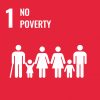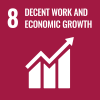Peshawar, 12 December 2022 – Aminullah has a special talent with food. Before the COVID-19 pandemic, the self-taught chef ran a micro-business providing catered Afghan-inspired meals for events.
As the pandemic continued, the demand for catering services fell overnight when in-person events became a thing of the past. Aminullah's small business struggled to stay afloat and he was eventually forced to close his business.
Aminullah’s story is a long and winding one. He was born in Pakistan in the 1990s to Afghan migrant parents. He and his family were repatriated to Afghanistan in the early 2000s but when they were unable to find a sustainable source of income in Afghanistan, his family returned to Pakistan.
Over the years, Aminullah tried his luck as an automotive mechanic, a carpenter, and a construction worker. Each job fell short as he continued to feel drawn to the kitchen.
"Food is very important in our culture – there is nothing a hearty lamb dish can't fix. As a child, I would keenly observe my mother cooking in the kitchen. I would try to familiarize myself with the aromas of spices and guess the ingredients she would use," he remembers.

Aminullah gets ready to cook a lamb dish in a large cooking pot. Photo: IOM/Usman Ghani
Six years ago, Aminullah began working as a daily wage worker in Peshawar restaurants – waiting on tables mostly, but restaurant owners soon realized that Aminullah had a gift when he was in their kitchens. Eventually, he apprenticed in popular restaurants across the city and worked hard to hone his talent.
Despite his love and talent for cooking, Aminullah could barely make ends meet as a daily wage worker. His days were long, yet his pockets remained empty. Wanting more than a basic wage, Aminullah decided to take a leap of faith before the pandemic struck. He took his meagre savings and rented cooking utensils and equipment to start his own culinary business.
Aminullah's micro-business was born with his ability to meld popular Afghan and Pakistani dishes seamlessly. However, renting cooking pots, grills, and other utensils meant that he had to split profits with his suppliers but still, he knew his small business might be viable. Then, the pandemic struck and his dreams were put on hold.

Cooking has always been Aminullah’s passion. Being able to resume his dream job and employ other migrants has brought him happiness, after two hard years. Photo: IOM/Usman Ghani
Earlier this year, Aminullah applied for a business development grant from the International Organization for Migration (IOM) with the hope of restarting his culinary passion. When his business was selected to receive a grant worth USD 1,000, Aminullah purchased six large and three medium cooking pots, along with a mincing machine, a water storage tank, three charcoal grills and a sign board.
With this small selection of equipment, Aminullah has been able to double the output from his kitchen and no longer has to split his profits with rental suppliers anymore.

Some of Aminullah’s specialties are Lamb, Saag, Kabuli Pulao, Chicken Saalan, and Gosht. Photo: IOM Pakistan 2022
Aminullah’s small business is thriving once again. His Lamb, Saag, Kabuli Pulao, Chicken Saalan and Gosht dishes have become extremely popular with the local Afghan migrant population in Peshawar.
Overwhelmed by the positive feedback and growing sales, Aminullah has purchased more equipment to grow his business which now employs seven workers – six of whom are migrants.
“My next goal is to expand my business and purchase dinnerware for catering events,” he says, full of hope.
This story was written by Maha Akbar, Media and Communications Officer with IOM Pakistan, maakbar@iom.int.
International Migrants Day (18 December) is the day designated by the United Nations to raise awareness about the challenges and opportunities presented by global migration in all its forms, to advocate for the rights of migrants to be respected, and encourage the international community to work together to ensure migration is managed in a manner that is safe, orderly and dignified.



